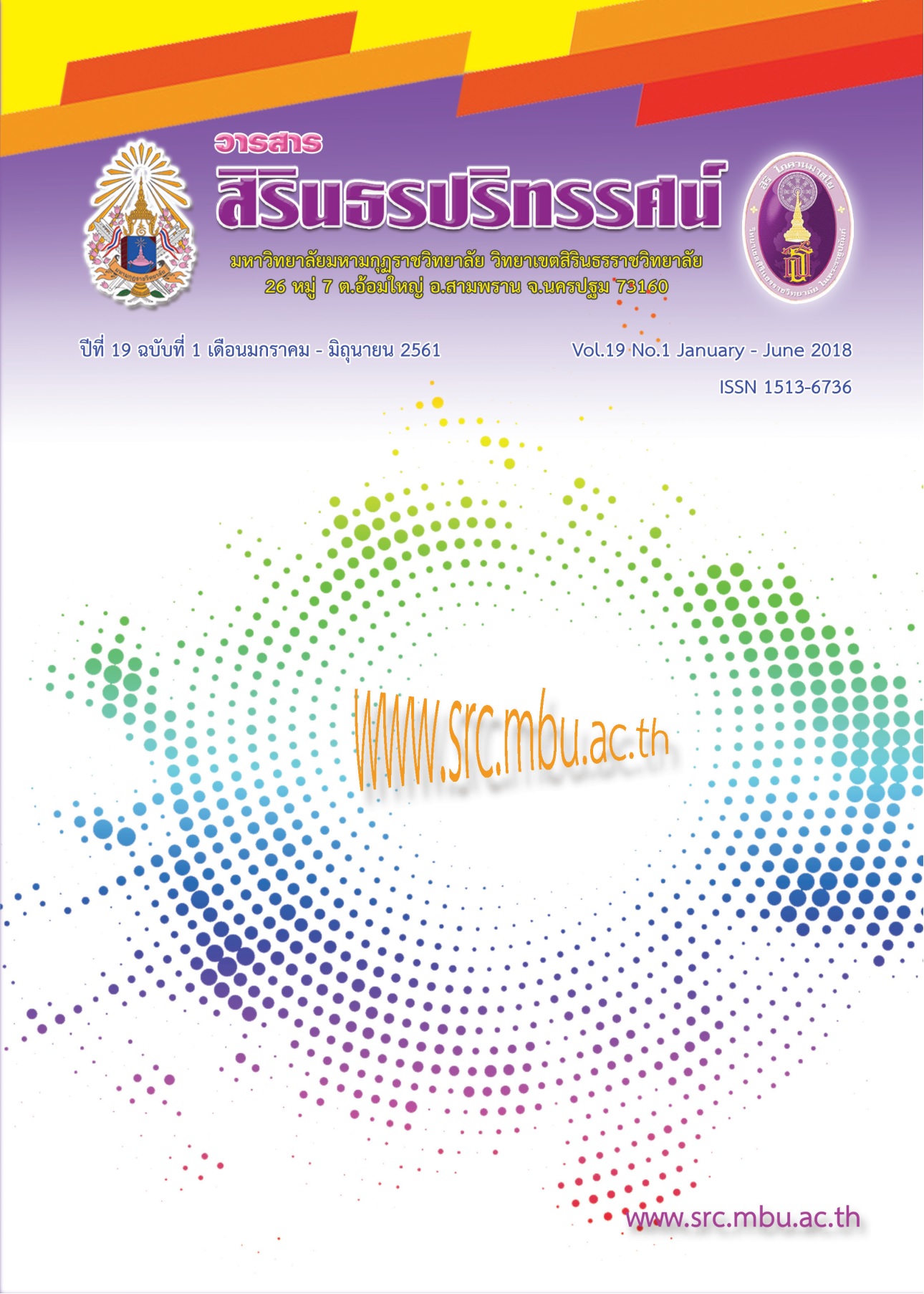LEADERSHIP MODELS AT PRIVATE GENERAL EDUCATION SCHOOLS ACCREDITED FOR QUALITY ASSESSMENT TO INTERNATIONAL STANDARDS IN BANGKOK
Keywords:
Administrators’ Leadership models at ordinary private schools, quality assessment to international standardsAbstract
The purposes of this study were to 1) investigate the administrators’ leadership models at ordinary private schools accredited for quality assessment to international standards in Bangkok and 2) compare the administrators’ leadership models at those schools. The population for this study included 130 administrators of ordinary private schools in Bangkok. An instrument used in the study consisted of a rating scale questionnaire with the Index of Item Objective Congruence (IOC) ranging from 0.66 to 1.00 and the reliability of .89. Statistics used for data analysis comprised frequency, percentage, mean, standard deviation, and t-test.
The findings revealed that
1) The administrators’ leadership models at ordinary private schools accredited for quality assessment to international standards in Bangkok were rated at a high level in the overall aspects. Considering each aspect, the people-oriented (consideration) aspect had the average higher than the task-oriented (initiating structure) aspect.
2) Comparing the administrators’ leadership models at ordinary private schools accredited for quality assessment to international standards in terms of gender, the results showed that the overall leadership models were different, with the statistical significance at .05. Considering each aspect, it was found that the people-oriented (consideration) aspect was different, with the statistical significance at .05, while the task-oriented (initiating structure) aspect was not. Regarding age, educational level, and years of service as a school administrator, the findings revealed no any differences in the overall aspect.
References
2.บุญทรง สัปปุริสสกุล. (2549). ภาวะผู้นำที่มีคุณภาพของผู้บริหารสถานศึกษาขั้นพื้นฐานในอำเภอพนมทวน สำนักงานเขตพื้นที่การศึกษากาญจนบุรีเขต 2. วิทยานิพนธ์ปริญญามหาบัณฑิต สาขาวิชาการบริหารการศึกษา มหาวิทยาลัยศิลปากร.
3.พัชร์ นิยมศิลป. (2556). วิสัยทัศน์อาเซียน 2020. [ออนไลน์]. เข้าถึงได้จาก : https://wiki.kpi.ac.th/ index.php?title วิสัยทัศน์อาเซียน 2020. วันที่สืบค้น 2559, 30 มีนาคม.
4.มัณฑนา อินทุสมิต. (2548).การรับรู้และการปฏิบัติตามบทบาทหน้าที่ของคณะกรรมการสถานศึกษาขั้นพื้นฐานในโรงเรียน สังกัดสํานักงานเขตพื้นทีการศึกษาเลย เขต 1. วิทยานิพนธ์ปริญญามหาบัณฑิต สาขาวิชาการบริหารการศึกษา มหาวิทยาลัยราชภัฏเลย.
5.รัตติกรณ์ จงวิศาล. (2545). ภาวะผู้นำการเปลี่ยนแปลง (Transformational Leadership). วารสารการบริหารคน. 23 (2) , 98 -105.
6.สำนักงานคณะกรรมการการศึกษาแห่งชาติ. (2543). การปฏิรูปการศึกษา.กรุงเทพฯ:สำนักงานคณะกรรมการการศึกษาแห่งชาติ.
7.สำนักงานคณะกรรมการส่งเสริมการศึกษาเอกชน. (2558). รายงานผลการประเมินโรงเรียนเอกชนประเภทสามัญศึกษาที่มีคุณภาพสู่มาตรฐานสากล ประจำปีงบประมาณ พ.ศ. 2558. กรุงเทพฯ : ม.ป.ท.
8.สำนักงานเลขาธิการสภาการศึกษา. (2549). การวิจัยเปรียบเทียบการปฏิรูปการศึกษาของประเทศในกลุ่มอาเซียน. กรุงเทพฯ : ม.ป.ท.
9.เสริมศักดิ์ วิศาลาภรณ์. (2547). ทฤษฎีแนวปฏิบัติในการบริหารการศึกษา. นนทบุรี : โรงพิมพ์ มหาวิทยาลัยสุโขทัยธรรมาธิราช.
Downloads
Published
Issue
Section
License
บทความที่ได้รับการตีพิมพ์เป็นลิขสิทธิ์ของ มหาวิทยาลัยมหามกุฏราชวิทยาลัย วิทยาเขตสิรินธรราชวิทยาลัย
ข้อความที่ปรากฏในบทความแต่ละเรื่องในวารสารวิชาการเล่มนี้เป็นความคิดเห็นส่วนตัวของผู้เขียนแต่ละท่านไม่เกี่ยวข้องกับหาวิทยาลัยมหามกุฏราชวิทยาลัย วิทยาเขตสิรินธรราชวิทยาลัย และคณาจารย์ท่านอื่นๆในมหาวิทยาลัยฯ แต่อย่างใด ความรับผิดชอบองค์ประกอบทั้งหมดของบทความแต่ละเรื่องเป็นของผู้เขียนแต่ละท่าน หากมีความผิดพลาดใดๆ ผู้เขียนแต่ละท่านจะรับผิดชอบบทความของตนเองแต่ผู้เดียว




